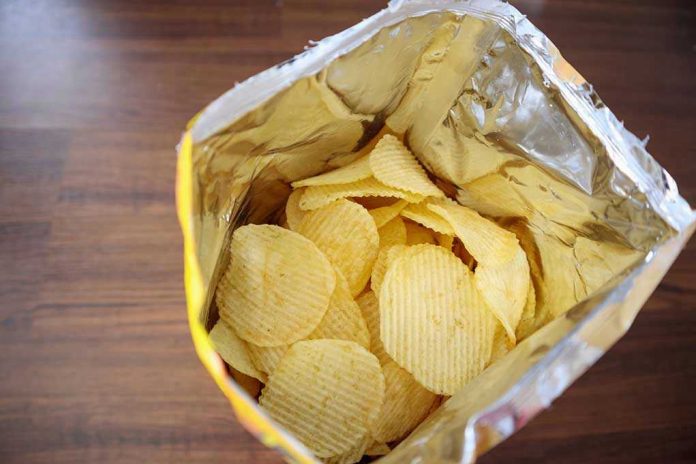
Indiana just became ground zero in the battle over government handouts for junk food, after the USDA approved the state’s bold move to ban sugary snacks and sodas from SNAP purchases with your tax dollars—a change that’s got both sides of the aisle in a frenzy to see what happens next.
At a Glance
- Indiana’s new SNAP waiver bans sugary drinks and candy from taxpayer-funded purchases starting January 2026.
- The USDA’s approval marks a dramatic shift in policy, with similar waivers greenlit for Nebraska and Iowa.
- Republican governors are leading the charge, framing these bans as fiscal sanity and common sense nutrition policy.
- The food industry and some advocacy groups are pushing back, decrying “paternalism” and warning about increased stigma for SNAP recipients.
Indiana Draws a Line: No More Taxpayer Candy Handouts
Shockwaves rippled through the food industry and welfare circles on May 23, 2025, when USDA Secretary Brooke Rollins approved Indiana’s high-profile request to block SNAP recipients from using benefits to buy sugary drinks and candy. This two-year pilot, set to begin January 1, 2026, is part of Governor Mike Braun’s “Make America Healthy Again” push, a direct rebuke to years of federal foot-dragging on the issue. For decades, SNAP (the program formerly known as food stamps) let recipients load up their grocery carts with soda and candy on the taxpayer dime, while politicians wrung their hands about “health equity” and “choice.” Now, Indiana is flipping the script. Governor Braun’s rationale is simple and impossible to argue with: “More taxpayer-funded SNAP dollars are spent on sugary drinks and candy than on fruits and vegetables. Indiana is proud to lead the way… by making this common sense move to return SNAP to its intended purpose: nutrition.”
The left, predictably, is howling about “stigmatization” and “choice,” as if government benefits have ever been about unlimited personal preference. But the facts are stubborn things—taxpayers are footing the bill for a public health crisis, and the states are finally saying enough is enough.
Red States Lead While Feds Finally Get Out of the Way
Indiana’s SNAP reform isn’t a lonely crusade. Nearly a dozen Republican-led states have either filed or are preparing waivers to ban sugary junk food from SNAP. Nebraska and Iowa joined Indiana in securing USDA approval, with more states in the pipeline. Each waiver is a two-year pilot, with the USDA now tracking waiver status nationwide. This is a radical shift from the past, when the USDA (under previous, let’s say, “less pragmatic” administrations) reflexively denied any attempt at reform, citing administrative headaches and fears of hurting feelings. Now, under the new administration, the message is clear: If you want to spend federal nutrition dollars, prove it’s actually nutrition. The move has public health advocates cheering, and even HHS Secretary Robert F. Kennedy Jr. has thrown his weight behind the initiative. Meanwhile, the food and beverage lobby is sweating bullets, bracing for lost revenue as their products lose access to the SNAP gravy train.
The bureaucratic resistance to these waivers has evaporated faster than a can of Coke at a summer barbecue. The reason? Political will. With President Trump back in the White House, the culture of excuses is over. The USDA’s approval of these waivers signals a new era for SNAP, one where fiscal responsibility and actual health outcomes—not virtue signaling—drive policy.
The Stakes: Fiscal Sanity, Public Health, and the End of Welfare Nonsense
Indiana’s new rules are set to kick in January 2026, giving retailers time to update their checkout systems to block restricted items. For SNAP recipients, it means no more taxpayer-funded Skittles or Big Gulps—just food that actually belongs on a dinner table. The potential impact is enormous. If these pilots succeed, expect a domino effect that forces the rest of the country to follow suit. Public health experts are optimistic, pointing to the links between sugary foods and skyrocketing rates of obesity and diabetes. Fiscal conservatives see a chance to end the insanity of subsidizing junk food while Americans struggle with rising healthcare costs and runaway inflation. Of course, industry groups and some “anti-poverty” advocates warn about slippery slopes, stigmatization, and “government overreach.” But let’s get real: There’s nothing compassionate about financing chronic disease and calling it freedom of choice. If anything, the truly ridiculous status quo is finally being challenged by leaders who remember that public programs are supposed to serve the public good—not the bottom line of Big Sugar and Big Soda.
For years, we watched as Washington turned a blind eye, letting taxpayer dollars bankroll the very products fueling America’s health crisis. Indiana, Nebraska, and Iowa have drawn a line in the sand. Now, the rest of the country is watching—and waiting—to see if common sense can finally win the day.














